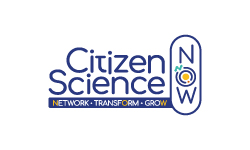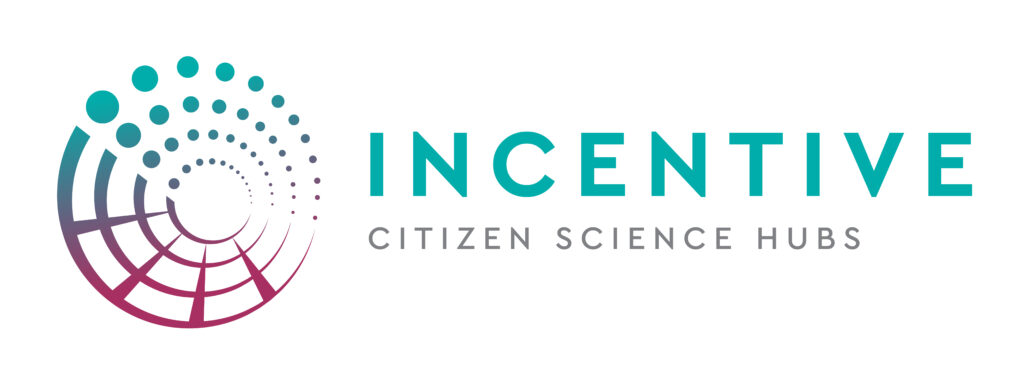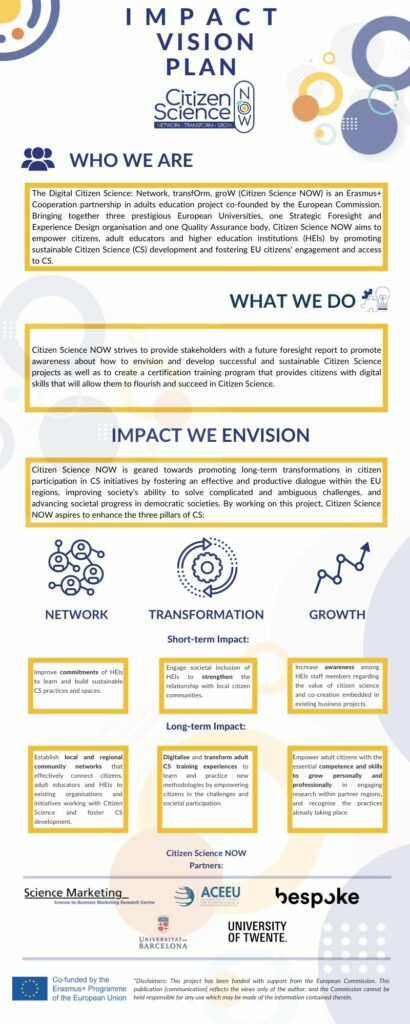Citizen Science:
Network. transfOrm. groW.
Citizen Science: NOW aims to explore potential futures in the broader engagement of citizens in Citizen Science (CS) and identify citizen competencies needed to achieve it. Our findings will help us develop digital CS capacity-building resources for and with citizens.
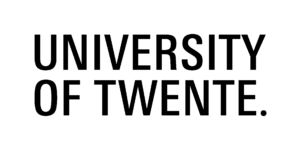



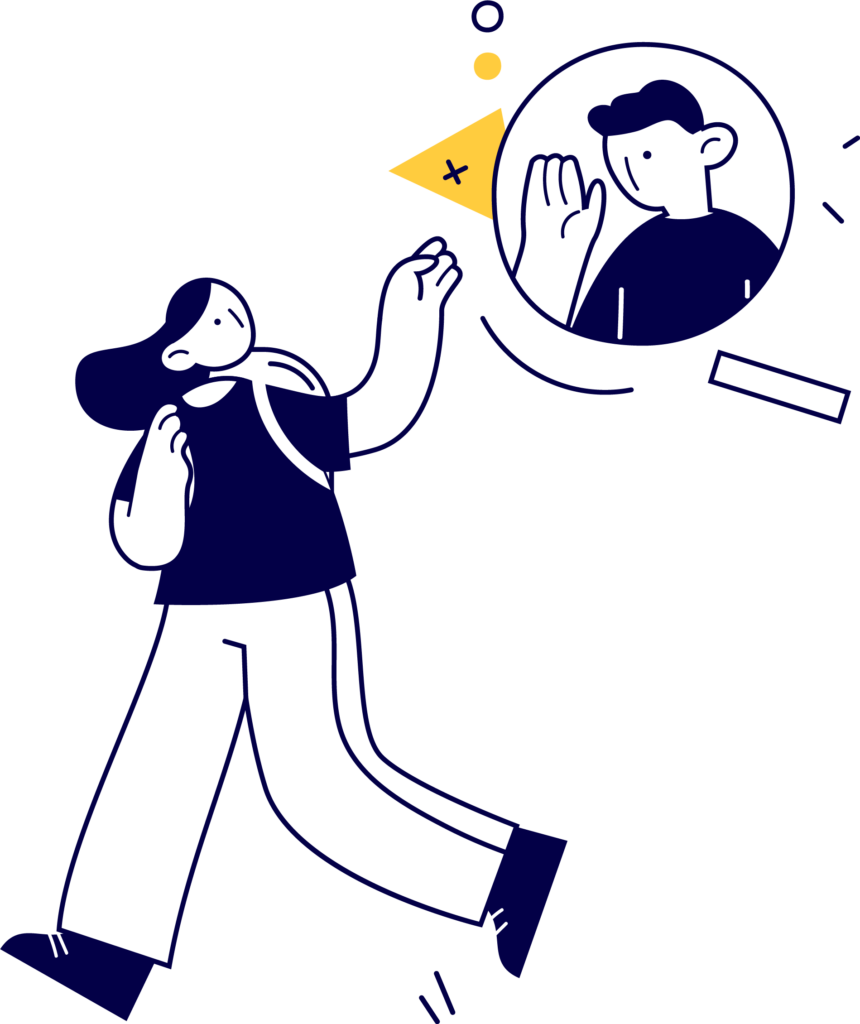
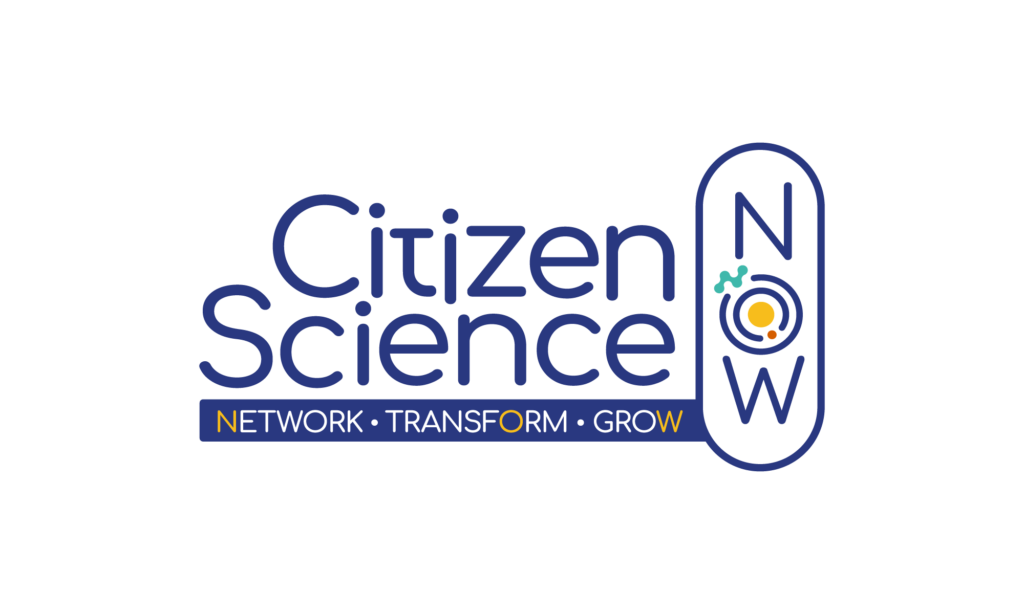
Promoting Social Change with Built-Together Science
Citizen Science NOW is an Erasmus+ Cooperation Partnership in Adult Education, co-funded by the European Commission for two years (2022-2023). The project brings together three universities, a Future Foresight Institute, and a globally-operating quality assurance body that focuses on acknowledging engagement and entrepreneurship in Higher Education based in four European countries. In its efforts to encourage broader citizen participation in Citizen Science (CS), the project is committed to sustainable CS development via digitalising adult CS training experiences and empowering adult citizens with essential CS competencies and skills in the partner regions.

Science-to-Business Marketing Research Center (S2B), Münster University of Applied Sciences, Germany
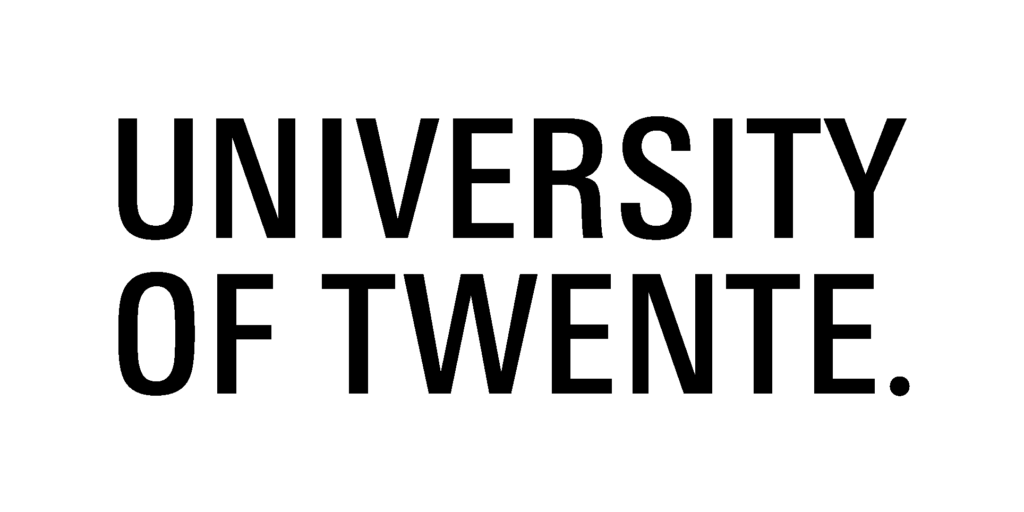
University of Twente, The Netherlands

University of Barcelona, Spain

Bespoke Copenhagen, Denmark

Accreditation Council for Entrepreneurial and Engaged Universities (ACEEU), Germany
Vision
Co-design with academic and community partners a set of digital training that helps empower adult citizens for their broader and more impactful participation in science and research.
Mission
Contribute to the efforts in maximising the potential of collaborative innovation by providing network, content and tools to adult citizens to build capacity through digital means.
Goals
Publish a Future Foresight Report that informs about adult citizens’ competencies needed for Citizen Science (CS) and co-create a set of online capacity-building modules that will serve the CS participation necessities of citizens.
“Klimaschutz Gemeinsam Wagen” or Dare Climate Change Together is a sustainability transformation project initiated by the Karlsruhe Institute of Technology.
Monika Seelmann, one of the climate coaches in the research project, shared with us her role and responsibilities and her perspectives on Citizen Science.
INCENTIVE is a European Union’s Horizon 2020 project that addresses the lack of upstream citizen participation in research and innovation by grounding the principles of Responsible Research and Innovation in the regional ecosystem of the pilot universities, showcasing a sustainable example of how research institutions can engage citizens in a meaningful way.

Desired Outputs
The project aims to create a systematic impact on Citizen Science (CS) by designing evidence-based guidelines, establishing local and regional CS structures, as well as developing and validating digital CS training modules for sustainable CS development in EU regions. Thus, strong leadership and collaboration at the local and regional levels are indispensable to achieving these goals:
- Transferrable examples of best practice Citizen Science (CS) initiatives in the EU to inspire regional, international, and European actors on CS development from social media, websites and networks.
- Educators verify the value and relevance of content by demonstrating its contribution to Citizen Science skills. In addition, educators should recommend the training materials to their circle and use them in their daily work.
Good Practices
Surveys
Interviews
Increased diversity and access of citizens in science in partner regions, through diverse roles they can take up with their improved competence and capacities
NETWORK
Develop effective networks to connect citizens, adult educators, and HEIs and promote sustainable CS development at the local and regional levels
TRANSFORMATION
Improve adult CS training experiences through digitalisation and transformation
GROWTH
Empower adult citizens with the fundamental competence and skills to grow personally and professionally in the partner regions
